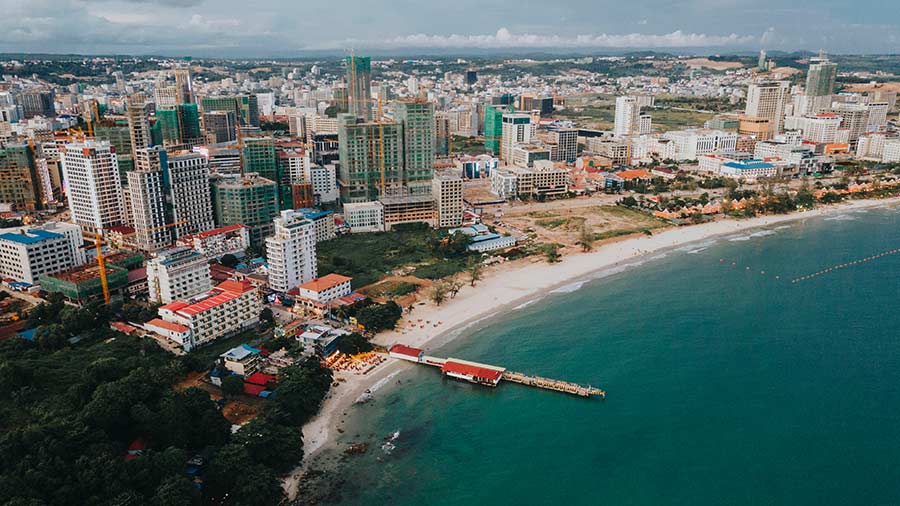The Just Energy Transition Partnership (JETP) between Indonesia and its international partners calls for renewable energy to comprise 34 percent of Indonesia’s power generation by 2030.
Indonesia will receive an initial US$20 billion over the next three to five years to help phase out coal energy and invest in renewable energy infrastructure.
Indonesia recently launched the most ambitious energy transition program in its history as part of an international partnership to combat climate change.
The program, known as the Just Energy Transition Partnership (JETP), will see an initial US$20 billion mobilized over the next three to five years toward Indonesia’s adoption of renewable energy.
Indonesia and its international partners, including the US, the EU, Japan, and Canada, launched the JETP at the Partnership for Global Infrastructure and Investment event at the G20 Summit in November 2022.
The JETP stands to channel billions of dollars to help Indonesia pivot from fossil fuels. The program is poised to create new momentum for Indonesia’s relatively nascent but emerging green economy as the country makes addressing climate concerns a growing priority.
The JETP model for climate action
The JETP is a new model for international cooperation on country-specific efforts to combat climate change. The JETP model combines public and private investments to assist with climate financing for developing countries, particularly to transition energy generation away from fossil fuels. In addition to driving energy transition, the JETP model seeks to promote the green economy and address the economic and social needs of communities that are vulnerable to the effects of energy transitions.
The first JETP was made in 2021 at the COP26 Summit between South Africa and several international partners, worth an initial US$8.5 billion. Indonesia is just the second country to receive a JETP. Vietnam and India will likely be the following two countries to receive a JETP.
In practice, Indonesia’s JETP will consist of a mix of concessional loans, market-based loans, grants, guarantees, and private investments from public and private entities. Together, they will provide financing to assist Indonesia phase out coal energy, investing in renewable energy infrastructure, and supporting affected communities to adapt to the transition.
Indonesia’s JETP is jointly led by the US and Japan and is supported by the UK, Germany, France, the EU, Canada, Italy, Norway, and Denmark. Of the JETP’s initial US$20 billion in the financing, US$10 billion will come from public sector pledges and US$10 billion will be mobilized from a set of private sector financial institutions.
In addition to government funding, loans from international institutions like the World Bank will account for a portion of the public financing. Private sector financing will be coordinated by the Glasgow Financial Alliance for Net Zero, which includes Bank of America, Citi, Deutsche Bank, HSBC, Macquarie, MUFG, and Standard Chartered.
Accelerating climate goals under the JETP
The JETP makes up part of Indonesia’s commitments to keep global warming within a limit of 1.5 °C. To meet this global objective, the JETP will set country-specific targets for Indonesia to reduce its emissions and eventually become carbon neutral. Many of these targets move forward the timelines of previous climate goals.
Some of the key objectives under the JETP include:
- Reach peak power sector emissions by 2030, approximately seven years ahead of the previous schedule, leading to a cumulative reduction of over 300 megatons in greenhouse gas emissions through 2030 and over 2 gigatons through 2060.
- Cap power sector emissions at 290 megatons of CO2 in 2030, down from the baseline value of 357 megatons of CO2.
- Reach net zero emissions in the power sector by 2050, moving this target forward by 10 years.
- Have at least 34 percent of all power generation comprised of renewable energy by 2030, approximately doubling the renewable energy deployment of previous plans.
- Accelerate the widespread deployment of energy efficiency and electrification tools, technologies, and reforms.
- Accelerate the development of a vibrant and competitive local industry in renewable energy and energy efficiency, including by investing in local technological capacity and knowledge in collaboration with international partners.
- Accelerate the early retirement of coal-fired power plants.
- Restrict the development of captive coal-fired power plants.
The JETP launch announcement also includes details on immediate steps over the next six months. These steps include developing a policy reform strategy and a private sector engagement strategy. These strategies will provide a framework for improving the environment for energy transition and directing JETP investments on the ground, with each project addressing Indonesia’s diverse energy transition needs.
Increased climate urgency in Indonesia
In recent years, the Indonesian government has made transitioning to renewable energy and addressing climate change increasingly urgent concerns. As an archipelagic nation, Indonesia is particularly vulnerable to the effects of climate change. However, it is also a developing country that is partially dependent on fossil fuels to grow its economy.
Indonesia has committed to becoming carbon neutral by 2060 and is working on its Long-Term Strategy for Low Carbon and Climate Resilience to 2050. In September 2022, the Indonesian government issued a regulation – the Presidential Decree on Renewable Energy – that encourages the use of renewables and plans for the early retirement of some coal plants.
Although Indonesia has committed to numerous climate goals, in practice the country has struggled to achieve them. Indonesia committed to having renewables contribute to 23 percent of its energy composition by 2025, but this figure currently sits at just 12 percent. Moreover, it is the world’s largest exporter of coal, and coal is responsible for about 60 percent of its own electricity generation.
In September 2022, Erick Thohir, Indonesia’s Minister for State-Owned Enterprises, said that retiring 15 gigawatts of coal power generation over the next three decades requires US$600 billion in capital support. The JETP, then, is a step towards meeting these needs.
The Indonesian government has made the development of its green economy a crucial part of both its energy transition and economic development strategies. In addition to transitioning Indonesia’s energy composition, the JETP stands to improve the business environment for Indonesia’s green economy by building infrastructure for renewables and improving financing vehicles for sustainable projects.
For instance, in 2021, the Indonesian government announced plans to create the world’s largest green industrial park. The Indonesian government is looking at areas like electric vehicles (EVs) and their batteries as new sectors for economic growth.
As such, Indonesia’s embrace of climate action is poised to accelerate the development of its emerging green economy. As the JETP necessitates the Indonesian government to undertake reforms to encourage renewable energy, more reforms relating to the green economy are likely to occur throughout 2023.





















